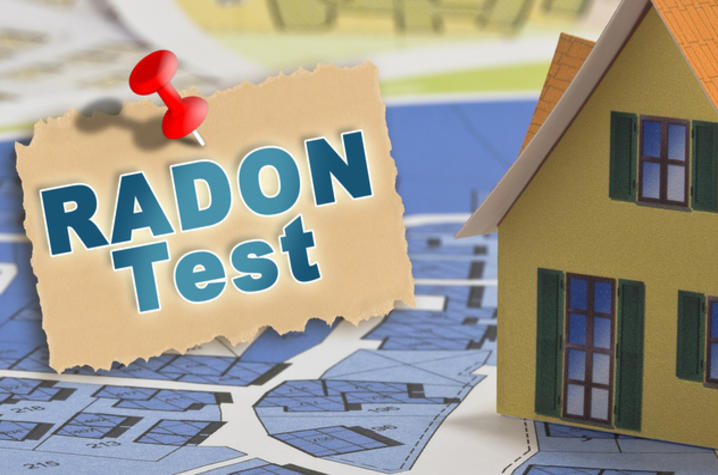Make home radon testing your new year’s resolution

The University of Kentucky Public Relations & Strategic Communications Office provides a weekly health column available for use and reprint by news media. This week's column is by Stacy Stanifer, Ph.D., a member of BREATHE at the University of Kentucky College of Nursing. Stanifer is also a member of the UK Markey Cancer Center’s Cancer Prevention and Control Research Program.
LEXINGTON, Ky. (Jan. 22, 2024) — This time of year, many of us make resolutions aimed at improving our health. January also happens to be National Radon Action Month, making it a great time to prioritize the health of those in your household by testing for the presence of radon gas.
Radon is the second leading cause of lung cancer in the U.S., and the leading cause of lung cancer among never-smokers. Radon is a radioactive gas that comes from the natural decay of uranium found in rocks and dirt in the ground. When radon from underneath a home leaks in through openings and cracks or gaps, it can build up to dangerous levels inside. The longer a person is exposed to high levels of radon, the greater the risk of developing lung cancer later in life. For this reason, it is important to act now to not only reduce your exposure, but also children’s exposure to radon.
Radon may be present inside any building or home, regardless of its location or type of foundation (e.g., slab, crawl space, basement). Radon risk potential across Kentucky is variable, yet it is recommended that all homes be tested for radon. Despite the risk, only 13 of every 10,000 homes in Kentucky test for radon annually. Radon can’t be seen, tasted, or smelled and causes no immediate symptoms — so it’s easy for radon to go unnoticed. The only way to know if you have a radon problem is to test your home. The good news is radon tests are simple to use and inexpensive or often free.
The Kentucky Radon Program provides radon test kits free of charge to Kentucky residents. You can request a free test kit by completing the form on the Free Radon Test Kit Offer website. You can also request a free kit from your health department if it is on the radon program list. In addition, those with library cards to the Rowan, Pulaski, Logan, or Christian County Public Libraries can borrow a digital radon detector from the library. The detector kits are being made available for check out through the Radon on the RADAR project, which aims to increase access to affordable home radon testing by partnering with public libraries.
When beginning to test, follow the instructions that are included with the kit. Depending on the type of test, it may take just a few days or several months to finish the test. If your test results show a radon level of 4 picocuries per liter (pCi/L) or higher, it is recommended that you take action to lower radon inside your home.
Your home should be tested:
- if it’s never been tested or radon levels are unknown, and then every two years.
- if you are preparing to buy or sell.
- before and after any home renovations, including after making repairs to reduce radon levels.
- before making any lifestyle changes in the home that would cause someone to spend more time in the basement or lower level (like converting a basement to a bedroom).
Finding out that your home has high radon levels can be alarming, but you can make your home safer. Radon reduction repairs can be done with the help of a certified radon mitigation contractor. The National Radon Proficiency Program offers an online resource to find a contractor near you. Planning to build a new home this year? Ask you contractor about using radon-resistant new construction techniques to minimize radon entry in the home.
Home radon testing is easy. Making the choice to test your home this January is a healthy resolution you can keep!
UK HealthCare is the hospitals and clinics of the University of Kentucky. But it is so much more. It is more than 10,000 dedicated health care professionals committed to providing advanced subspecialty care for the most critically injured and ill patients from the Commonwealth and beyond. It also is the home of the state’s only National Cancer Institute (NCI)-designated Comprehensive Cancer Center, a Level IV Neonatal Intensive Care Unit that cares for the tiniest and sickest newborns, the region’s only Level 1 trauma center and Kentucky’s top hospital ranked by U.S. News & World Report.
As an academic research institution, we are continuously pursuing the next generation of cures, treatments, protocols and policies. Our discoveries have the potential to change what’s medically possible within our lifetimes. Our educators and thought leaders are transforming the health care landscape as our six health professions colleges teach the next generation of doctors, nurses, pharmacists and other health care professionals, spreading the highest standards of care. UK HealthCare is the power of advanced medicine committed to creating a healthier Kentucky, now and for generations to come.




